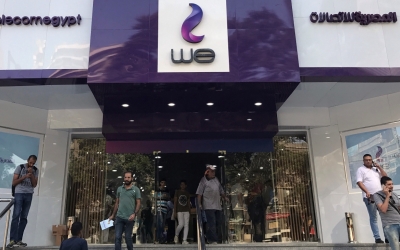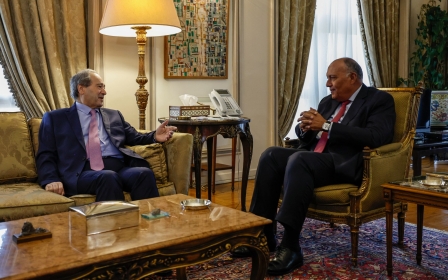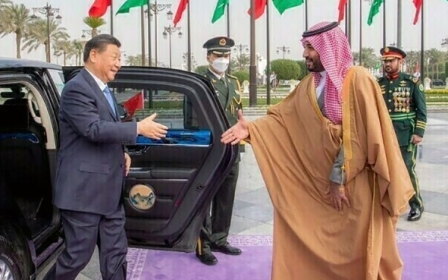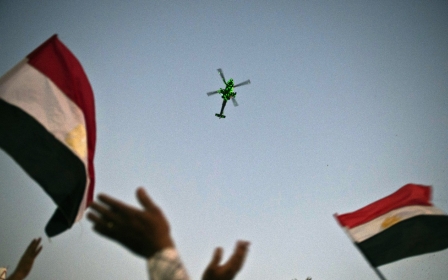Egypt's Sisi makes surprise visit to Saudi Arabia
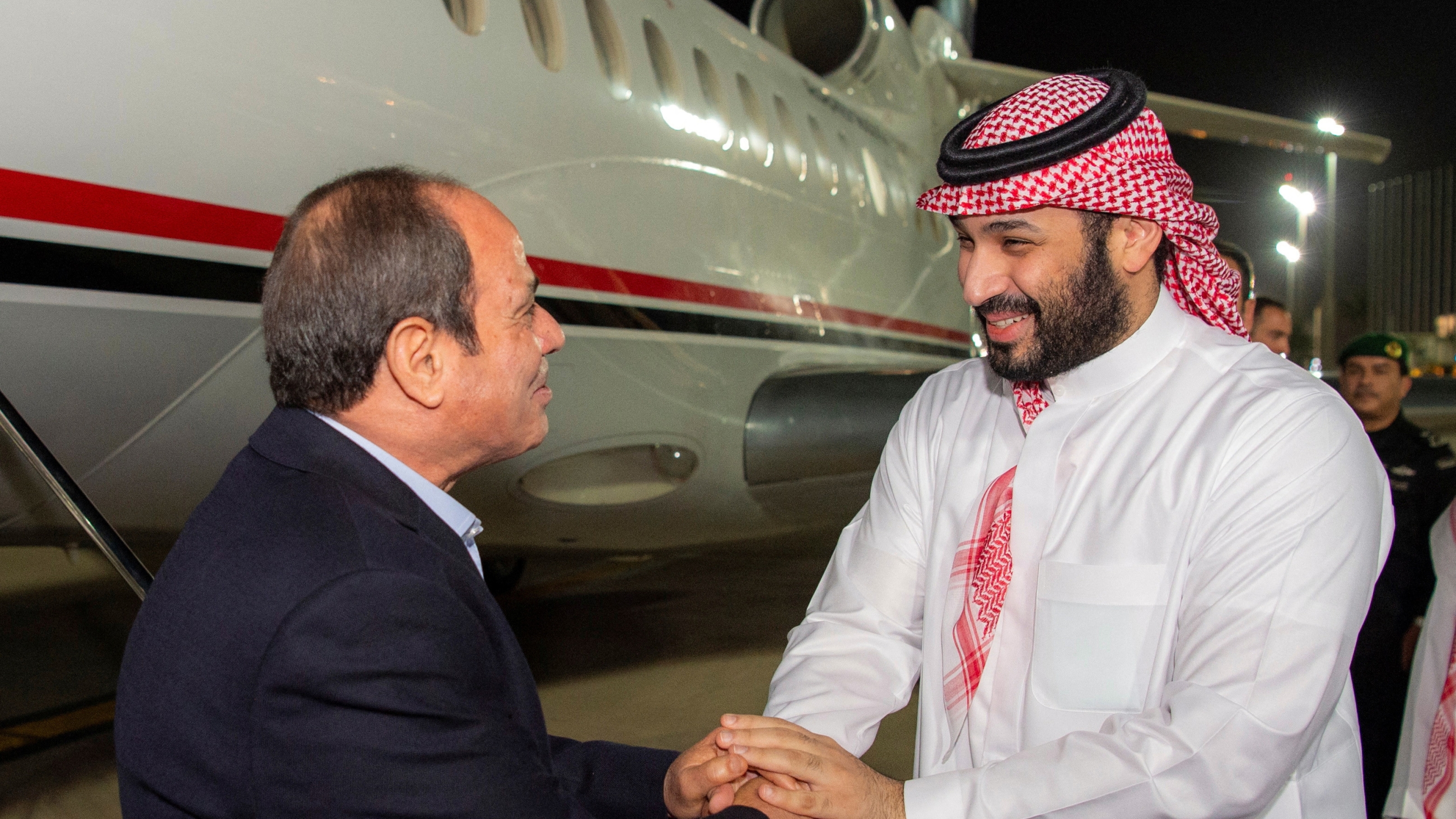
Egyptian President Abdel Fattah el-Sisi made a surprise visit to Saudi Arabia and met Crown Prince Mohammed bin Salman on Sunday.
The trip comes as Egypt continues to struggle to reign in soaring inflation, a growing debt crisis and chronic devaluation of its currency at home.
Other prominent Saudi and Egyptian officials attended the meeting between the two leaders, including Saudi National Security Adviser Musaad bin Mohammed al-Aiban and Egypt’s intelligence chief Abbas Kamel.
Egypt’s economy has been supported by a regular infusion of Saudi cash over the last decade, however, the kingdom has increasingly given signs that it’s no longer interested in giving aid unconditionally.
Saudi Finance Minister Mohammed al-Jadaan, speaking at the World Economic Forum in Davos in January, warned that his country will no longer give aid to others without reforms.
"We used to give direct grants and deposits without strings attached," Jadaan said. "And we are changing that. We are working with multilateral institutions to actually say, 'We need to see reforms.'"
In February, prominent Saudi Arabian academics embarked on rare criticism of Sisi's policies and the role of the Egyptian military in the economy, prompting a backlash from the president’s supporters.
While Sisi has insisted that the government knows best and that the crisis is a normal outcome of global factors affecting the rest of the world, a number of public figures in the Gulf have expressed doubts about his economic model.
Khalid al-Dakhil, an academic and former columnist at the Saudi Al-Hayat newspaper, wrote recently that the current economic crisis in Egypt has its roots in the military coup of 1952 and that Egypt “has not left the mantle of the military since 1952”.
He added that “the army's control of politics and economy in Egypt has not allowed for a different political-economic alternative”.
The comments caused a rift between the countries, prompting angry reactions from Sisi supporters who accused Saudi analysts of double standards, and failing to equally criticise their own government.
In a lengthy column published by a pro-government website Cairo24, a pro-Sisi columnist seemed to react to the Saudi writers, attacking them for “insulting their masters".
“The once barefooted and naked, who have only recently started to wear the most luxurious outfits, should not insult Egypt, the pride and mother of the world,” he wrote in derogatory language commonly used in the Arab world to describe the residents of the Gulf who derive their wealth from recent oil discoveries.
Along with the United Arab Emirates (UAE) and Kuwait, Riyadh helped keep Sisi’s economy afloat, with billions of dollars in deposits and aid in the two years after his military coup in 2013. It is estimated that Egypt has received $92bn from Gulf countries since 2011.
Gulf states later switched to investments and acquisitions of Egypt's profitable state-owned assets rather than deposits in the Central Bank, as Cairo struggled to repay its debts and finance its import-dependent economy, embarking instead on lavish spending on new mega-projects with questionable economic value.
Middle East Eye propose une couverture et une analyse indépendantes et incomparables du Moyen-Orient, de l’Afrique du Nord et d’autres régions du monde. Pour en savoir plus sur la reprise de ce contenu et les frais qui s’appliquent, veuillez remplir ce formulaire [en anglais]. Pour en savoir plus sur MEE, cliquez ici [en anglais].


